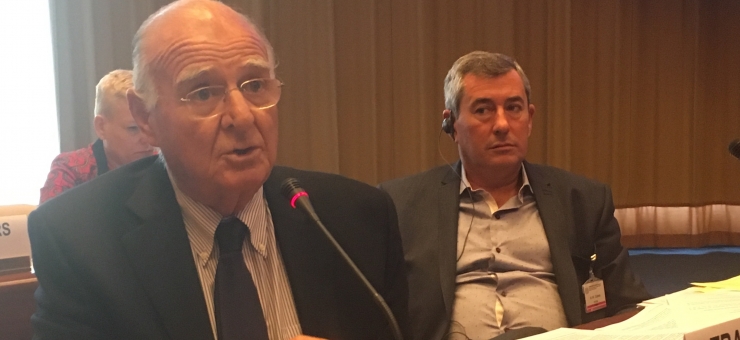MENU
Affiliates only
Login
Login

UNICARE President, Carlos West Ocampo, used the ILO plenary session on 'Improving Employment and Working Conditions in Health' to explain how unions are changing the care sector for the better.
West Ocampo took Argentina has a good example of the positive effects of unionisation in the sector with decent work and more training programmes.
“FATSA in Argentina has implemented a National Vocational Training Program designed to address the shortage of nurses, health technicians in different specialties and geriatric assistants.”
He explains further, how this successful programme was developed, “The financing of the program was agreed with the employers in the framework of the different national collective bargaining that cover the different sectors of the Health activity, with an average employer’s contribution equal to 1% of the worker’s salary to a fund administered by the union.
"More than 30,000 nurses, technicians and assistants have been trained through the programme which has national coverage in the private health sector. In the public sector, in agreement with different provincial states, more than 10,000 young people without work and workers without the necessary capacities were trained as nurses. At the time of submitting this report, more than 9,000 nurses are incorporated into Public Health schools.”
Currently, agreements have been signed with indigenous communities to finance the training of members of indigene communities of nurses and health workers, with a social commitment not to abandon their original communities and thus improve the health quality of these communities.
This is an strong example of how collective bargaining can serve as a practical tool for promoting decent work and helping to solve the shortfall of care workers.